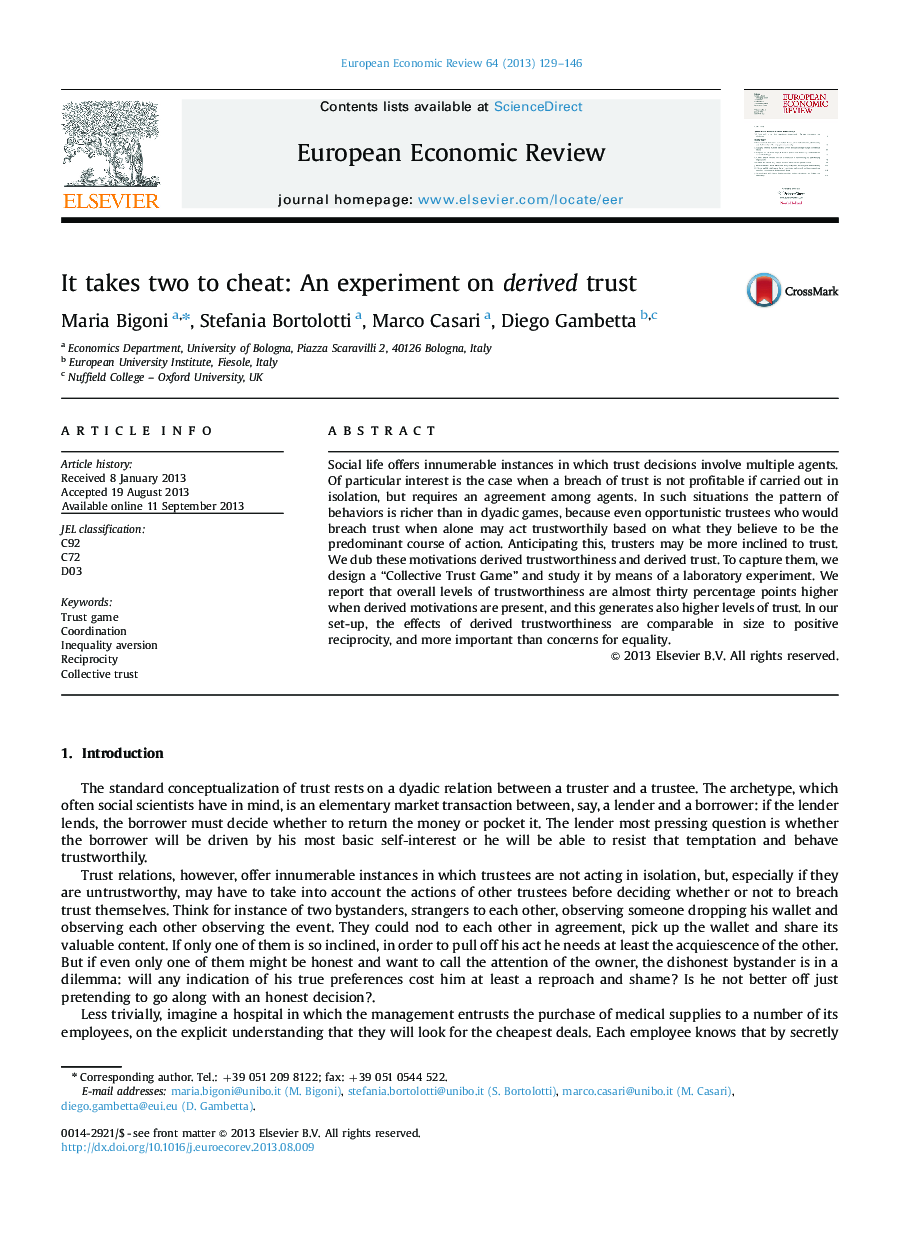| Article ID | Journal | Published Year | Pages | File Type |
|---|---|---|---|---|
| 5066920 | European Economic Review | 2013 | 18 Pages |
Author-Highlightsâ¢We study a new trust-warranting property absent from previous experiments.â¢In social life, trustees may act trustworthily because they expect others to do so.â¢Standard trust games involve dyadic relations and capture only primary motives.â¢We design a new game to capture derived motives for trust and trustworthiness.â¢Results suggest that derived motives are a major drive for trust and trustworthiness.
Social life offers innumerable instances in which trust decisions involve multiple agents. Of particular interest is the case when a breach of trust is not profitable if carried out in isolation, but requires an agreement among agents. In such situations the pattern of behaviors is richer than in dyadic games, because even opportunistic trustees who would breach trust when alone may act trustworthily based on what they believe to be the predominant course of action. Anticipating this, trusters may be more inclined to trust. We dub these motivations derived trustworthiness and derived trust. To capture them, we design a “Collective Trust Game” and study it by means of a laboratory experiment. We report that overall levels of trustworthiness are almost thirty percentage points higher when derived motivations are present, and this generates also higher levels of trust. In our set-up, the effects of derived trustworthiness are comparable in size to positive reciprocity, and more important than concerns for equality.
